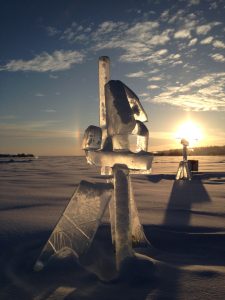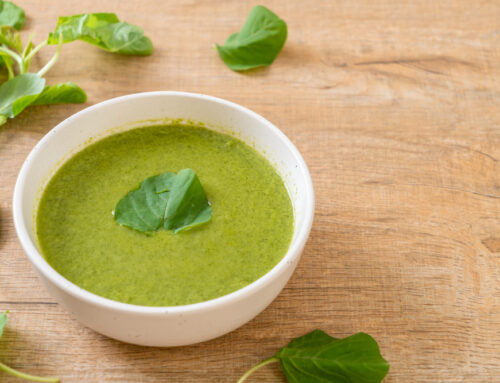by Dr. Kathleen Regan, ND
Did you know that weather has a huge impact on health? From ‘catching cold’ to winter blues, the fall & winter bring darker hours, damp/cold rain and eventually, dry cold weather that can compromise our health if we aren’t prepared. Understanding seasonal changes is one of the most important steps you can take in cold & flu prevention and in maintaining health all-year long.
Darkness
We have evolved with the 24 hour light-dark cycle of our planet. Our exposure to sun and darkness influences all of our biorhythms from temperature regulation to sleep cycle to hormonal balance. Long-dark days are notorious for causing us to sleep longer, feel more fatigued, and ‘out-of-sorts’.
Tip#1 There are always beautiful, sunny days in the fall and winter. Get outside during these times and expose yourself to the light. This will help to boost mood and physiological balance.
Tip#2 Supplement with adrenal support. The adrenal gland sits on top of the kidneys and is responsible for the secretion of cortisol, which is one of the hormones affected by long-dark days. Depletion or imbalance in cortisol secretion can leave us feeling, tired, and overwhelmed with poor stress tolerance. Taking adrenal support will help to nourish this gland and regulate production of stress hormones helping us to manage our stress better.
Tip#3 Supplement with melatonin as the season changes. Sometimes the worst part about change is our inability to adjust. The dark days come and we never really make the natural transition. Taking melatonin before bedtime sends a message to the brain that darkness has come and it is time for sleep. This helps us to achieve a deeper state of sleep where our body is able to repair and prepare for the cold days ahead.
Rain
Rain brings with it atmospheric changes which are notorious for causing aches, pains & headaches. Rain also bring dampness and mold which aggravates allergies and respiratory problems.
Tip#1 Ask your naturopathic doctor about an anti-inflammatory diet. This reduces internal inflammation and makes your body more resistant to inflammation from external sources such as high-pressure systems. Anti-inflammatory eating also helps support the immune system immune system and reduces the intensity of allergies and asthma.
Tip#2 Try regular, low-impact, exercise such as cycling, swimming or brisk walking. Swimming in particular helps to build muscle and strength around weakened joints without causing further joint damage. It also increases circulation which can help to relieve pressure induced aches and pains. Finally, the rhythmic breathing required by swimming tones the respiratory system and can dramatically reduce asthmatic symptoms.
Tip#3 Try anti-inflammatory supplements as recommended by your naturopath such as Bromelain & Quercetin, MSM, Wobenzyme, Tumeric …and many more. Reducing systemic inflammation will help to reduce aches & pains as well as allergies & asthma.
Cold
Cold weather influences your circulation, and in turn, your immune system’s ability to function. In addition, if the weather is cold & dry your nasal and respiratory passages become dehydrated making you more susceptible to microbial and viral infection. Yes, you can actually ‘catch a cold’.
Tip#1 Bundle up Canadians! We do not live in the tropics. Certain areas of the body loose heat faster than others including our heads, necks, under arms, backs of knees and low backs. These areas should be well protected to help prevent susceptibility to viral, bacterial or fungal invaders.
Tip#2 Invest in a humidifier to prevent dry, susceptible respiratory passages. Place the humidifier in your room and run at nighttime.
Tip#3 Turn your body temperature up with ‘warm’ foods including soups, stews, and chilies. Cook your foods well. Consume herbs that are warming such as ginger, cardamom & cinnamon.
Tip#4 Supplement with immune support. For example, Siberian ginseng was infamously used in Russia to help people make it through the long, cold winters. There are many vitamins, minerals, medicinal foods and herbal medicines that helps to keep you well all winter long.
Ballester F, Michelozzi P, Iniguez C. Weather, climate, and public health. Journal of Epidemiology and Community Health. 2003;57(10):759-760.
Kalkstein, L. S., and K. M. Valimont. 1987. Climate effects on human health. In Potential effects of future climate changes on forests and vegetation, agriculture, water resources, and human health. EPA Science and Advisory Committee Monograph no. 25389, 122-52. Washington, D.C.: U.S. Environmental Protection Agency.
Zipes DP. Warning: the short days of winter may be hazardous to your health. Circulation. 1999 Oct 12;100(15):1590-2.






